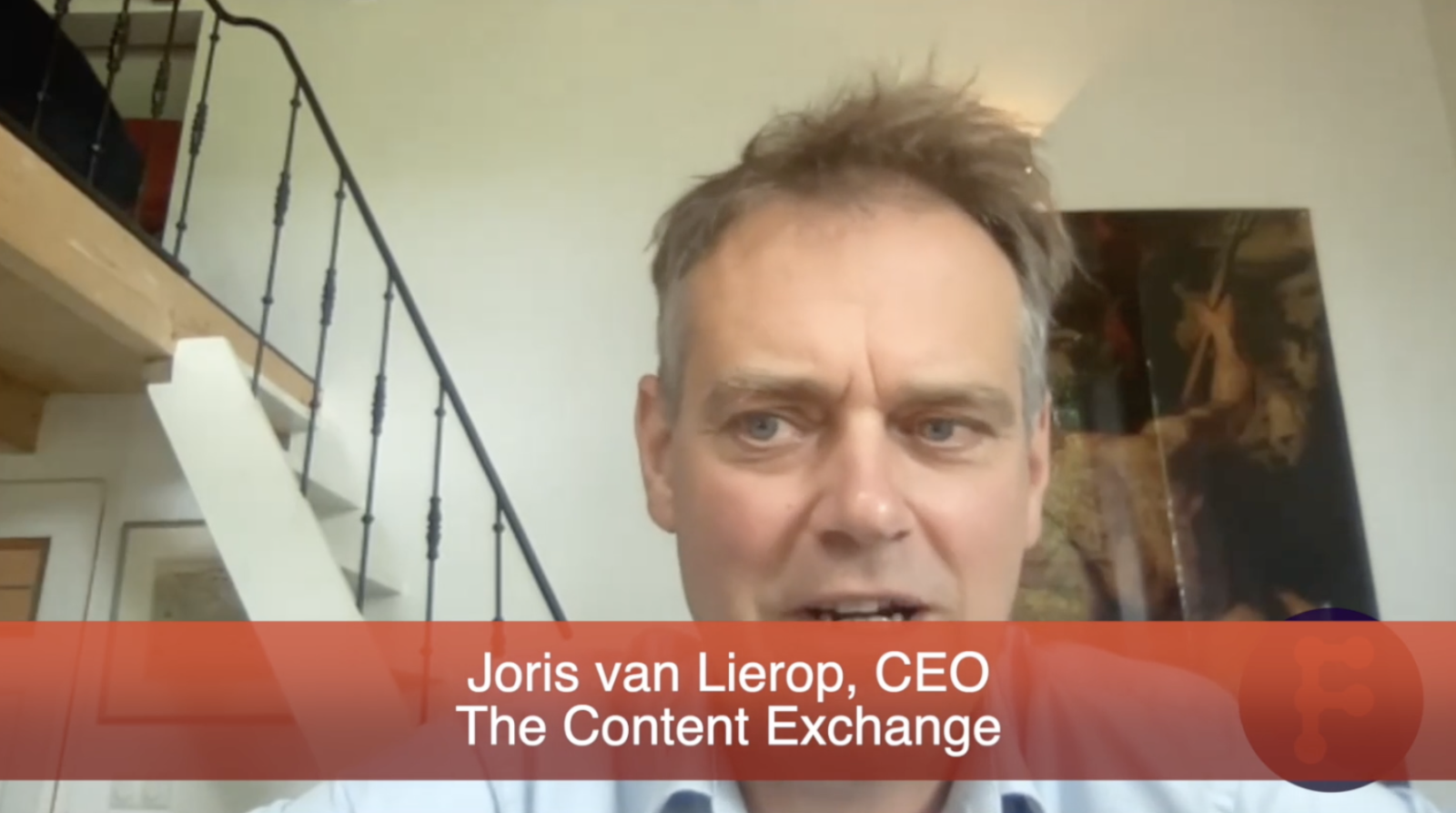The Week Kick-off: As seasons shift, it’s a dynamic time for the industry
It’s a dynamic time for the industry, and never perhaps has that been more apparent than in this week’s range of stories. We’ve got an exclusive interview with The Content Exchange, a new platform that seeks to marry licensees with content creators at scale. Meanwhile, Echobox reminds us that social media traffic still pays. Throw in some Substack, further fury from Google, and a new report from FIPP and UPM into Media’s Future in a Post-Covid World, and the first Kick-off of September shows us the winds of seasonal change…
The Content Exchange on bringing creators and buyers together at scale
Founded in 2020, The Content Exchange (TCE) is a digital marketplace where publishers and creators can offer or license quality content directly from one another. Translating everything automatically into English, the platform facilitates licensing deals at scale, and provides a place where content can find greater reach.
“We now have a new European directive,” says Joris van Lierop, co-Founder and Managing Director of The Content Exchange. “This arranges the reuse of content on ‘content sharing platforms’ as they call it, i.e. Facebook, who they want to have pay for reusing the content, which is a big issue right now. And I think these big global players aren’t the only ones reusing content and it’s good that there are some much stronger directives coming through to protect intellectual rights, but also the talent and effort put into creating that kind of content.” Full article here.

Echobox: Remember that Facebook is still driving significant traffic to publisher sites
Of course, the counter argument to clamping down on social media, is that such platforms still generate significant traffic to publisher sites. In another exclusive interview published last week, Ashley Kibler, Senior Content Manager for Echobox, reminded us that in 2020, over 13% of all traffic to news publishers’ sites came from Facebook, and it wasn’t time to start boycotting these channels just yet:
“Facebook wants to keep users on its platform for as long as possible, which is incompatible with a publisher’s objective of driving referral traffic back to their own website. We’ve seen Facebook recommend certain features or practices to improve performance, such as using interest tags or publishing a mix of photo posts and link posts.”
“But we always assess these recommendations from the publisher point of view, study them scientifically, and then leverage our technology to enable publishers to maximise the benefits from social media in a way that protects their own interests, rather than Facebook’s. It comes down to using social media intelligently to reap the benefits of traffic and reach while avoiding being at the total mercy of these platforms.” Full article here.
Google appealing French competition authority fine
As the ‘Friend or Foe’ debate surrounding Facebook continues to rage within the industry, so too does the one around Google. In July, the company was hit with a US $592m penalty for its approach to paying publishers for their content. It last week hit back at the fine, as Sebastien Missoffe, a Google France VP and country manager, wrote in a statement:
“We are appealing the French Competition Authority’s decision which relates to our negotiations between April and August 2020. We disagree with a number of legal elements, and believe that the fine is disproportionate to our efforts to reach an agreement and comply with the new law. Irrespective of this, we recognize neighbouring rights and we continue to work hard to resolve this case and put deals in place. This includes expanding offers to 1,200 publishers, clarifying aspects of our contracts, and we are sharing more data as requested by the French Competition Authority in their July Decision.” TechCrunch has the full story here.
Salman Rushdie to publish next book on Substack
And if that wasn’t enough media disruption for one week, Author Salman Rushdie has announced that he is to publish his next book via Substack. “I got very attracted to the idea recently, in this strange year and a half, of trying out things I’ve never done before,” he told The Guardian. “I’m going to kind of make it up as I go along, but I have some starting points. Aside from the novella, it will feature short stories, literary gossip (“as long as it’s not defamatory”) and writing about books – and film.”
The move comes as the newsletter platform also announces its investment into comics. “Today we are thrilled to be announcing a major investment in comics creators,” wrote co-Founder Hamish McKenzie on the company blog. “There are few industries where we feel the Substack model could be more game-changing than in comics, where the gap in power and earning potential between publishers and for-hire creators is enormous, and where the creator of a story can spawn a nine-figure franchise and yet take home little more than a standard paycheck. On Substack, comics creators are their own publishers, and they are guaranteed full ownership of their intellectual property, content, and mailing lists, like any other publisher on the platform.”
Confessions of an early-career journalist leaving the industry
And while we’re exploring media change – the good, the bad, and the ugly – Digiday runs a great ‘Confessions series’ in which it speaks to people anonymously about their experiences in the industry. Last week saw the publication of an enlightening, if not slightly harrowing, interview with a former journalist, who has this to say:
“I’m sure the pandemic has a big role. It made you reassess what you’re spending your time and energy on. If it didn’t feel good to you, why keep doing it? It made it easier for those kinds of decisions. Especially for younger journalists. It’s not the mid-career people leaving the industry; it’s people in their first five to seven years. That’s a problem for the talent pipeline for the next generation of journalism. Maybe they’ll want to come back, but they are leaving because they are recognizing those same issues.” Full article here.
As for FIPP…
We’re launching a new report this week in partnership with UPM Communication Papers. The pandemic has been a ‘super-charged Darwinian event’ for the industry – the whitepaper begins – and has precipitated various extinctions and evolutions. Flexibility has therefore become a necessary adaptation, and those companies that have managed to manoeuvre through the difficulties have emerged stronger, often with a more focused mission and healthier workplace culture. ‘Media’s Future in a Post-Covid World’ will be available from Tuesday of this week, and looks at revenue models, the way we work, sustainability, print, and more. You can find out more here.










